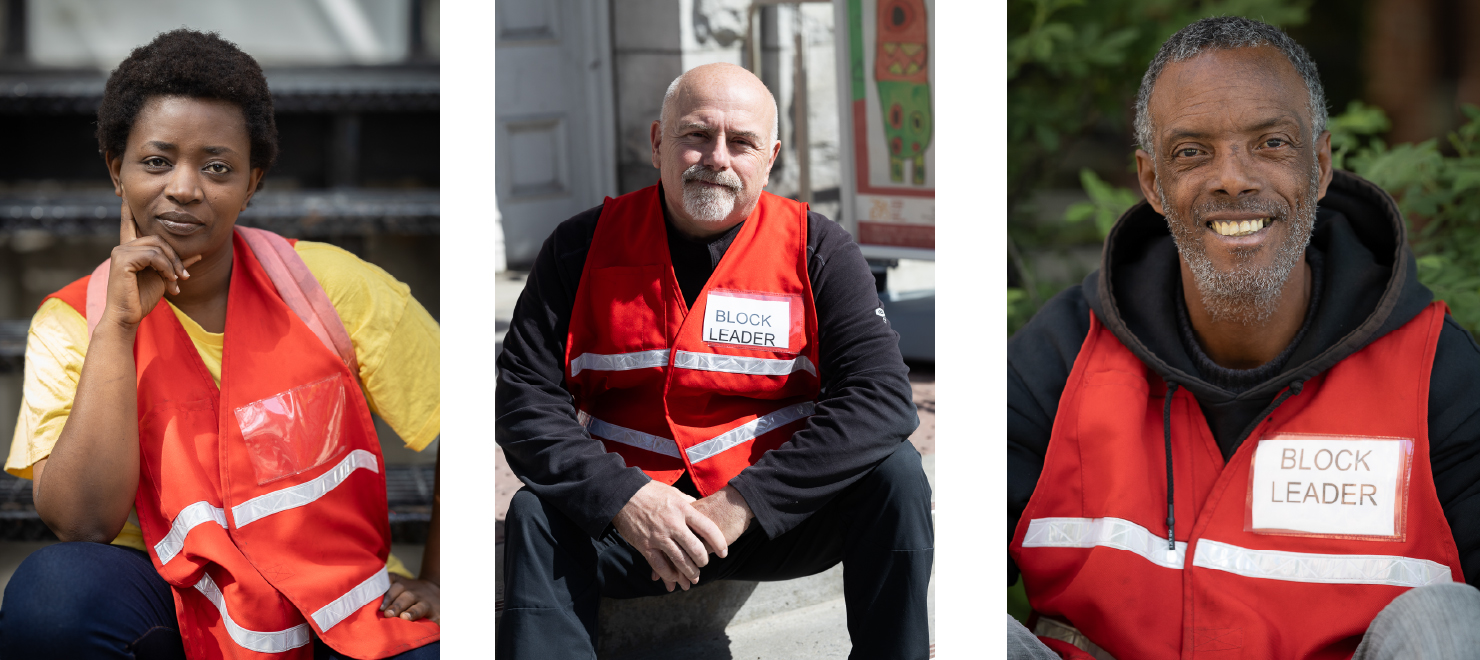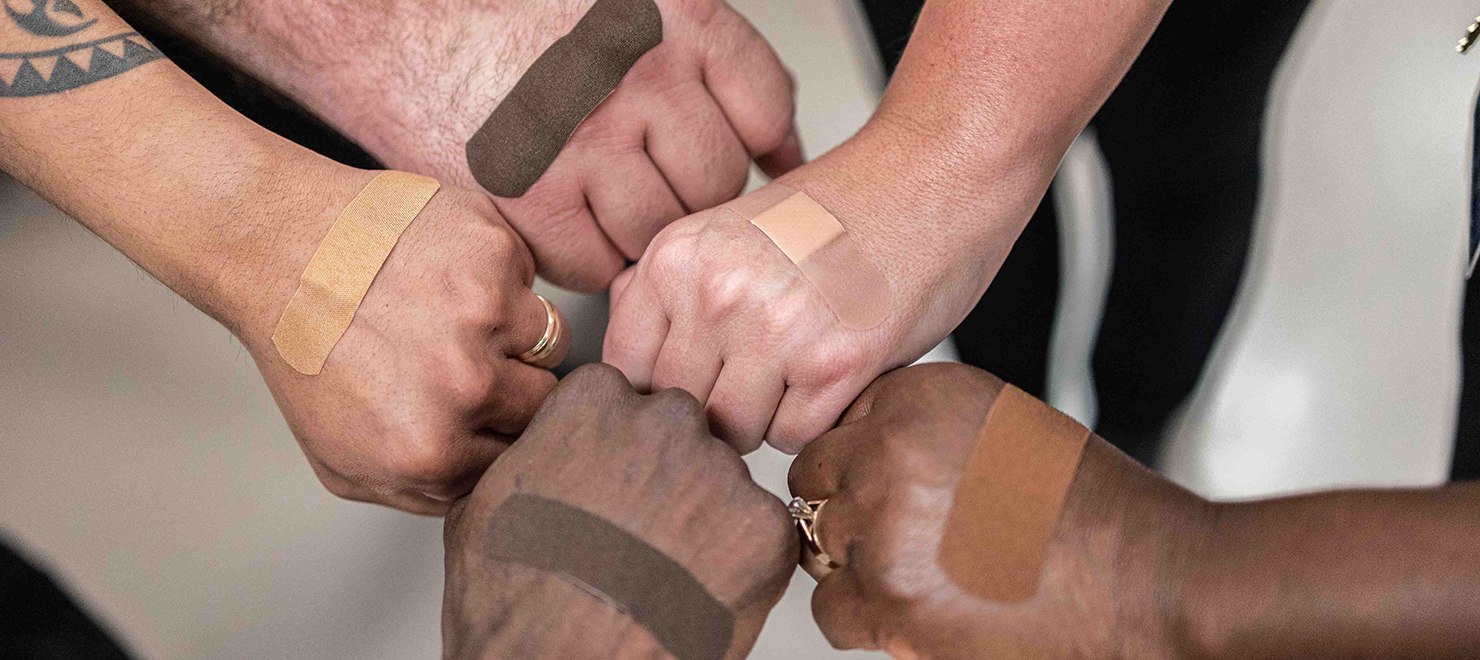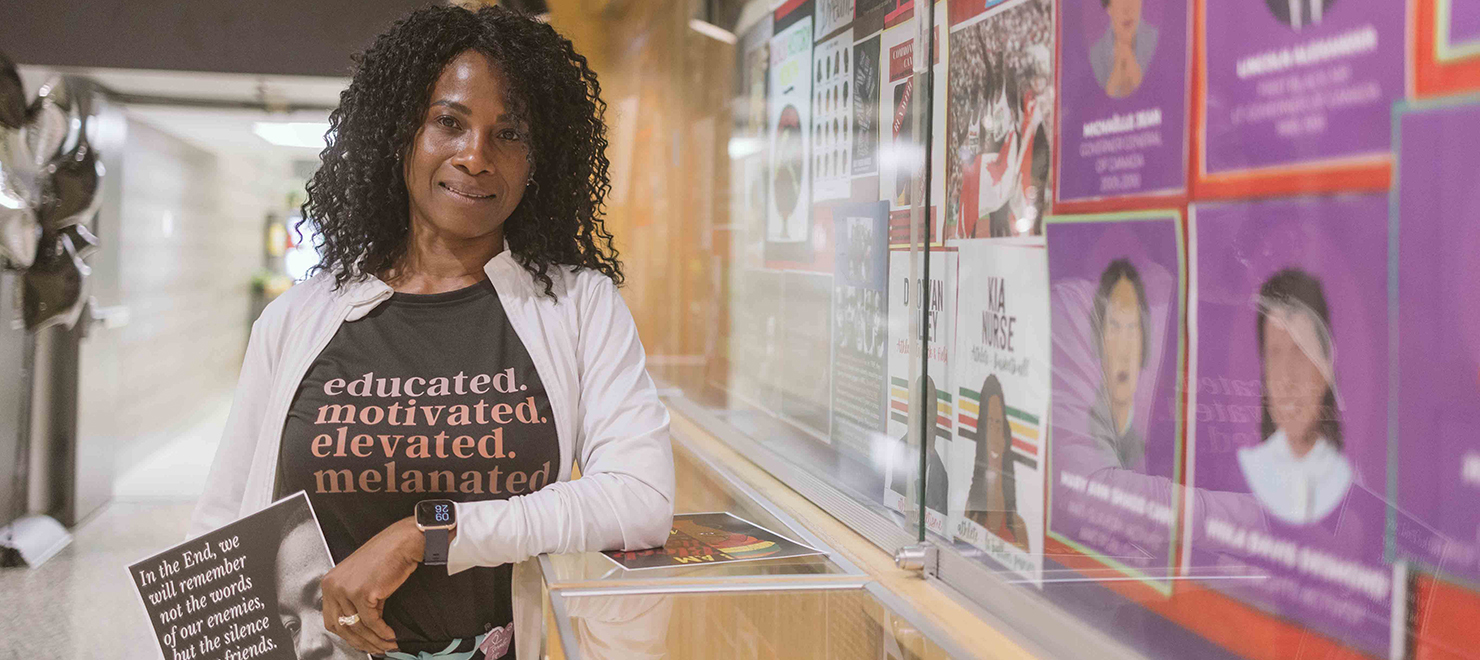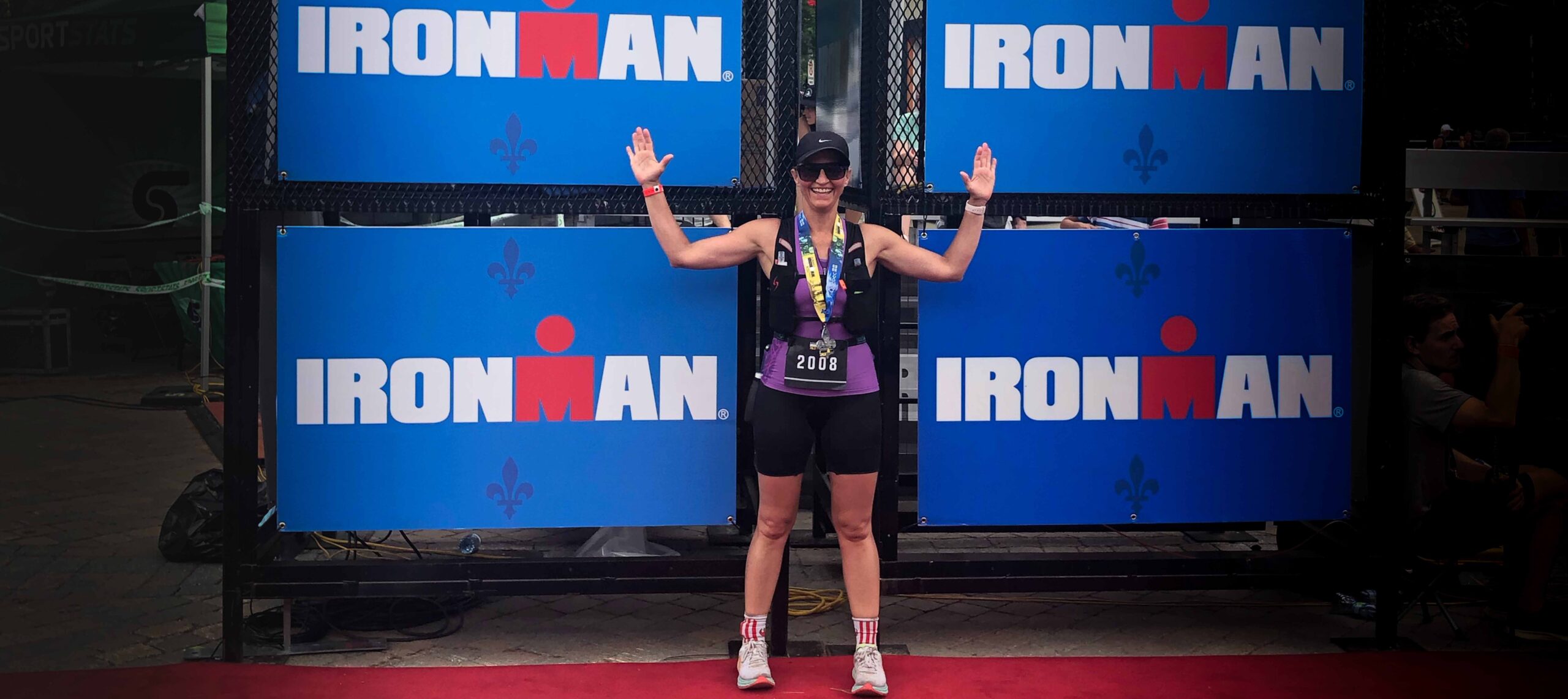
Myth: “A living kidney donor can no longer do sports.”
Reality: “I’ve been doing triathlons for five years now. I try to do two or three a year. And I only started after my donation,” says living kidney donor Angèle Lamothe. “I’m able to keep up with everyone that I train with. My donation hasn’t stopped me.”
Myth: “A living kidney donor should not get pregnant after donation.”
Reality: “I had one more child after my donation,” says Angèle. “And I didn’t have any complications during my pregnancy. I had a healthy, long, full-term pregnancy.”
Thirteen years ago, Angèle gave her father a new life without giving up any part of her own. All these years later, she has only noticed one side effect. “My heart grew,” she says with joy. “It really grew seeing my dad being healthy and happy, travelling and playing with my kids.”
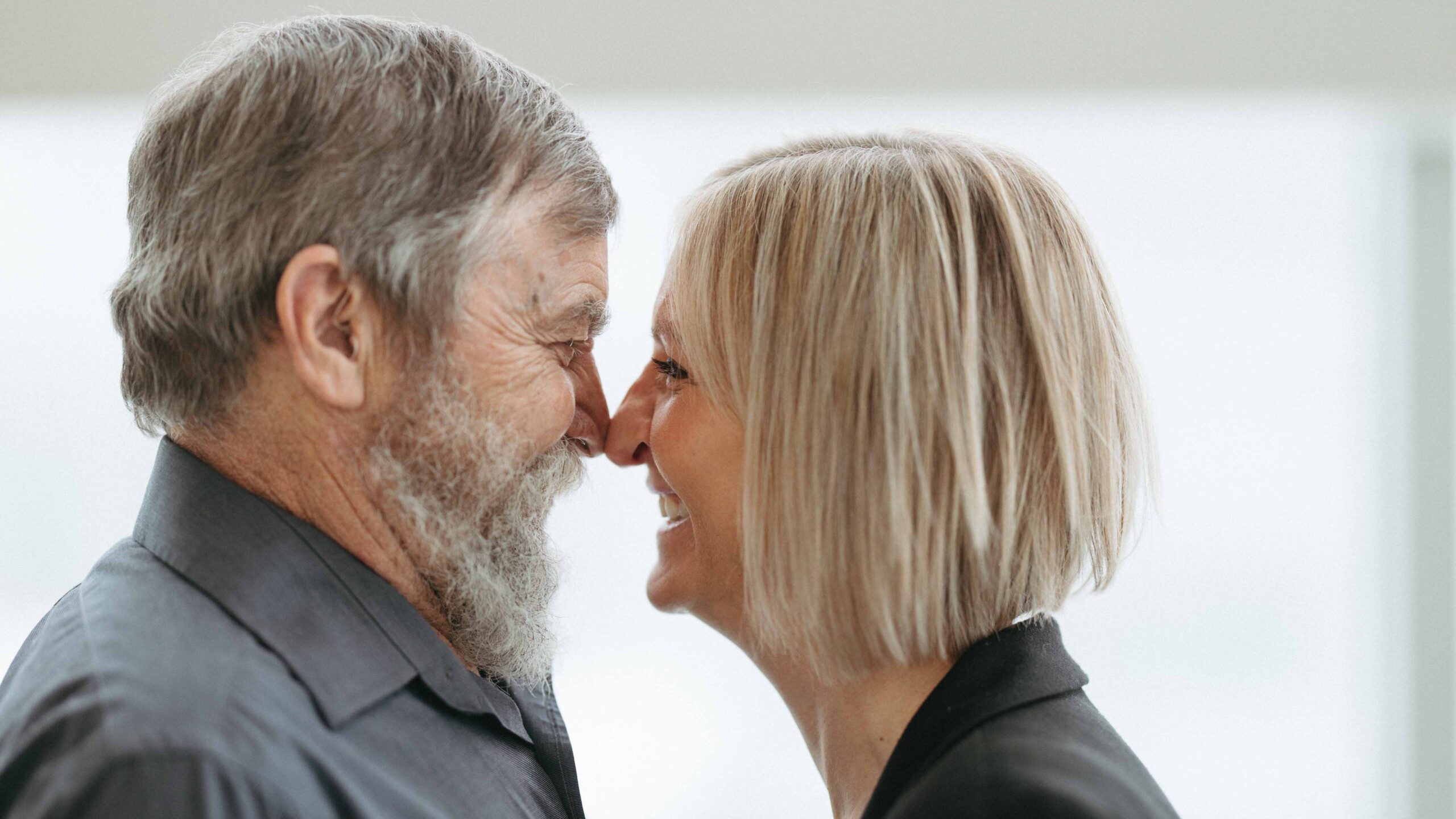
At first, Raymond was concerned for his daughter, but she put his mind at ease
Angèle’s living kidney donor story began more than 14 years ago when her father, Raymond Lamothe, suddenly found that he had trouble walking.
“One morning, I woke up and couldn’t get out of bed,” recalls Raymond.
Doctors told Raymond that he had granulomatosis with polyangiitis, a rare disease of the blood vessels that was restricting the blood flow to his kidneys.
As soon as Angèle heard that her father would need a new kidney, she wanted to see if she was a match. “It wasn’t even something that I had second thoughts on,” she recalls.
That decision didn’t sit well with her father. “I was a little leery at first,” recalls Raymond. “I didn’t really know what it would do to my daughter.”
Angèle is a long-serving speech pathologist at The Ottawa Hospital. As a health-care worker, she knew a few things about living kidney donation and was able to re-assure her father that donors go on to live healthy lives.
With her father’s mind at ease, Angèle completed the living kidney donor evaluation process at The Ottawa Hospital and was approved to donate.
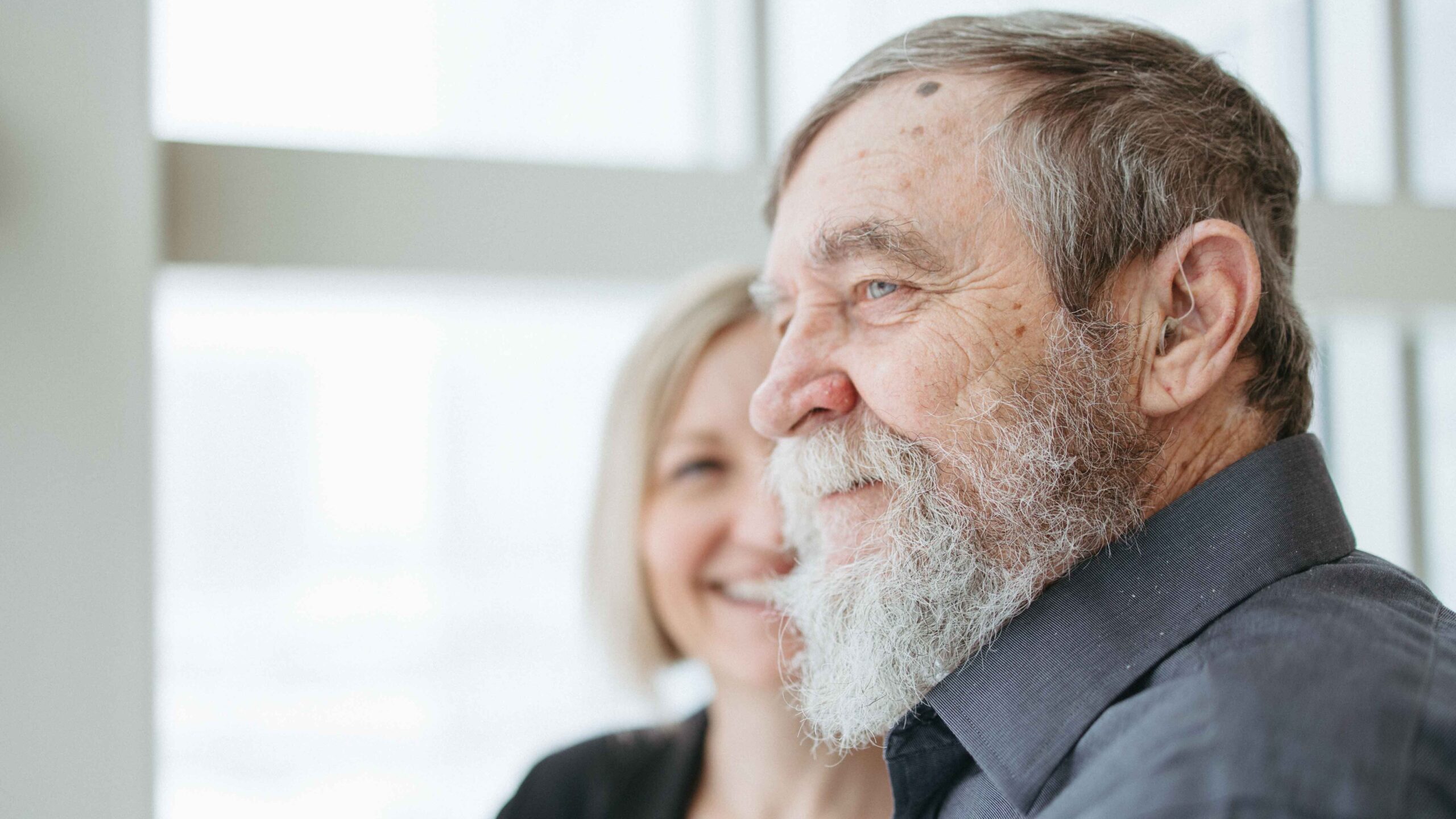
Angèle and Raymond are living their best lives
Not long after the father and daughter went into surgery at the General Campus, Raymond was given some very good news. “Even when I was still on the operating table, the doctor told me that Angèle’s kidney was already working,” he says with a smile.
The good news kept coming. “I couldn’t believe I was back home in five days. They took good care of me,” he says. “I wasn’t down very long. It was two months max before I was back at work.”
Angèle was in the hospital for four days, debunking another persistent myth—that donors are in the hospital for a long time. The reality is that the average hospital stay for a living kidney donor is between two and four days, and most donors fully recover within eight weeks of surgery. Angèle experienced fatigue for a bit longer than the average donor, but the surgery may not have been the reason why. “I did have an eight-month-old at home,” she explains with a smile, “I think any parent with an eight-month-old is tired.”
Raymond celebrated his 72nd birthday this past December. He still works three days a week and stays active maintaining his cottage and keeping up with his teenage children. He is glad to still be healthy and able to do the things he loves. “I wasn’t on dialysis that long but long enough to realize how much the transplant changed my whole life,” he says. “Just unbelievable. My quality of life is no comparison to what it was before.”
As for Angèle, if her pictures weren’t evidence enough, she’s happy to report that she is also living her best life. “In terms of my own quality of life, sincerely it has not changed. My checkups are pristine,” she says. “I wouldn’t have gone through with it if it meant I couldn’t do the things that I love.”
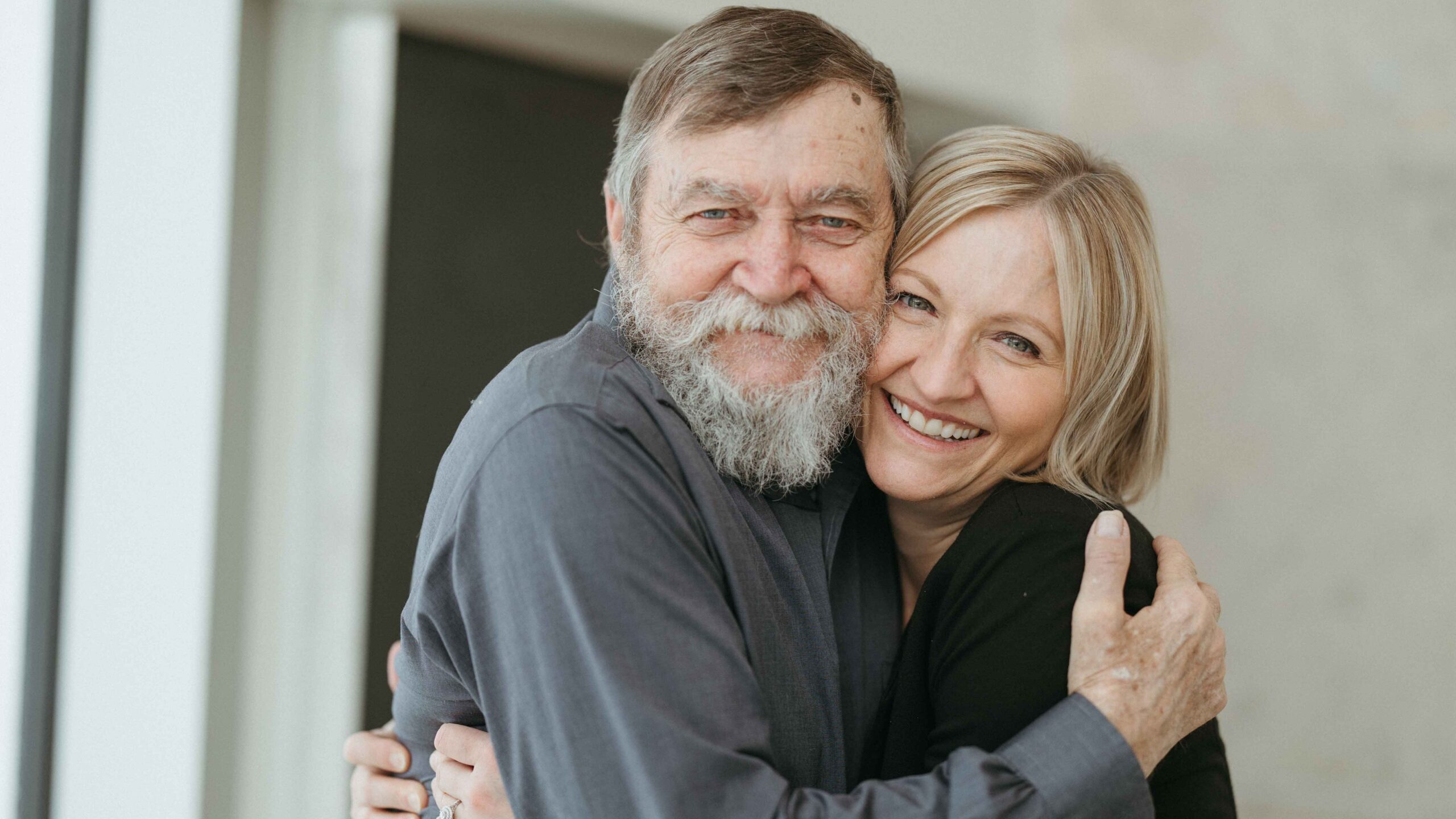
Helping donor candidates cross the finish line
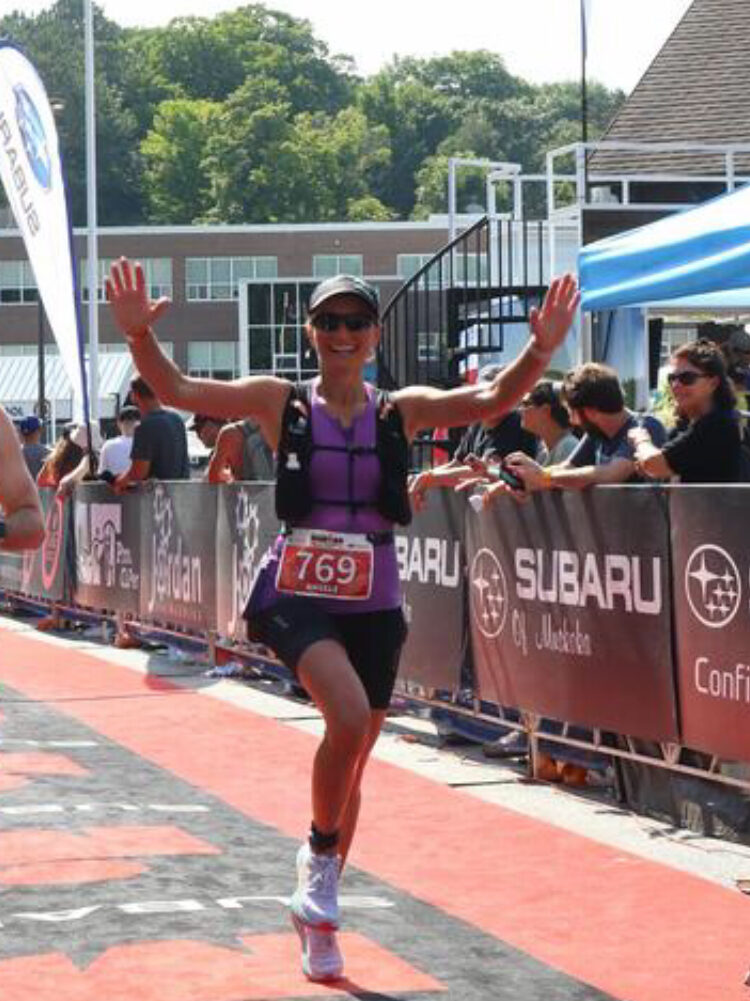
“After I donated, I wanted to give back,” says Angèle.
For eight years, she was a guest speaker at The Ottawa Hospital’s donor education sessions, which provide candidates with an overview of the living kidney donation process and give them an opportunity to talk to a donor like Angèle.
“I would come in for about an hour and answer their personal questions. Two of the most common ones they had were, ‘Can I have kids?’ and ‘Will I be able to work out again?’”
Angèle, who is also a personal empowerment coach, helped put their minds at ease by sharing her story.
Though Angèle is unsure if any candidates went on to compete in triathlons, she does know that many of them crossed a more important finish line: they completed the donation process and helped someone in need.
Don’t let misinformation stop you from giving the gift of life
Are you considering becoming a living kidney donor but are concerned about what you may have heard or read? Angèle has some advice for you: “Stay open minded, be curious, ask questions and don’t be attached to what you think it will look like or what people have told you. It’s true for anything in life—there are things people have told us, and a lot of them are myths.”
Like any surgery, living kidney donation does come with certain risks. If you are considering donation, our Living Kidney Donor team will discuss potential risks with you based on your individual medical history. In the meantime, to help you separate fact from fiction, we’ve got a great resource you might want to check out…
More living kidney donor myths debunked
“A donor needs to be in perfect health.”
“A donor needs to be a family member.”
“A donor and a recipient must be in the same blood group.”
Want to see these myths and others get thoroughly busted? Visit the Myth Busters page of The Ottawa Hospital’s Living Kidney Donation website.

Support patient care and research at
The Ottawa Hospital
You might also like…
February is Black History Month
Five members of The Ottawa Hospital’s Black community reflect on what this month means to them, their heritage and the importance of building a truly equitable health care system.
The place to be: The Ottawa Hospital recognized as one of Canada’s most admired corporate cultures
The Ottawa Hospital (TOH) has been named one of Canada’s most admired corporate cultures. Guided by compassion and commitment to patient care, TOH has developed a workplace culture that inspires confidence and trust in our employees, patients and family members.
2SLGBTQIA+ care at The Ottawa Hospital: A helpful guide
The Ottawa Hospital offers an array of services and resources to help meet the specific care needs of the 2SLGBTQIA+ community — including a provincial-first gender-affirming surgery clinic, a 24/7 care program for survivors of sexual assault and intimate partner violence, and a specialty clinic for medically complex patients seeking help on their transition journeys.
“It’s about giving them hope and purpose”: Ottawa Inner City Health’s Block Leaders program marks one year serving the community
Seven days a week, Block Leaders head out into the ByWard Market to help fellow members of their community who are unhoused or use drugs. They provide support to people in distress, respond to overdoses and even clean their neighbourhood — all with the goal of creating a safer and healthier community for everyone.
We’ve got you covered: The Ottawa Hospital now offers bandages for a variety of skin tones
Whenever you’ve scraped your knee or had your blood drawn, odds are your bandage was the same colour every time. Peach has been the default hue for over a century — but no longer at The Ottawa Hospital.
The power of community @ TOH
Last year, Registered Nurse Macrina Valcin created an intricate display on her unit for Black History Month, transforming the unit’s bulletin board into a powerful celebration of Black people, culture and history. This year, thanks to the warm support and encouragement from a newly formed inclusive community, Macrina is showcasing her passion project to a much larger audience.


 To reset, hold the Ctrl key, then press 0.
To reset, hold the Ctrl key, then press 0.



